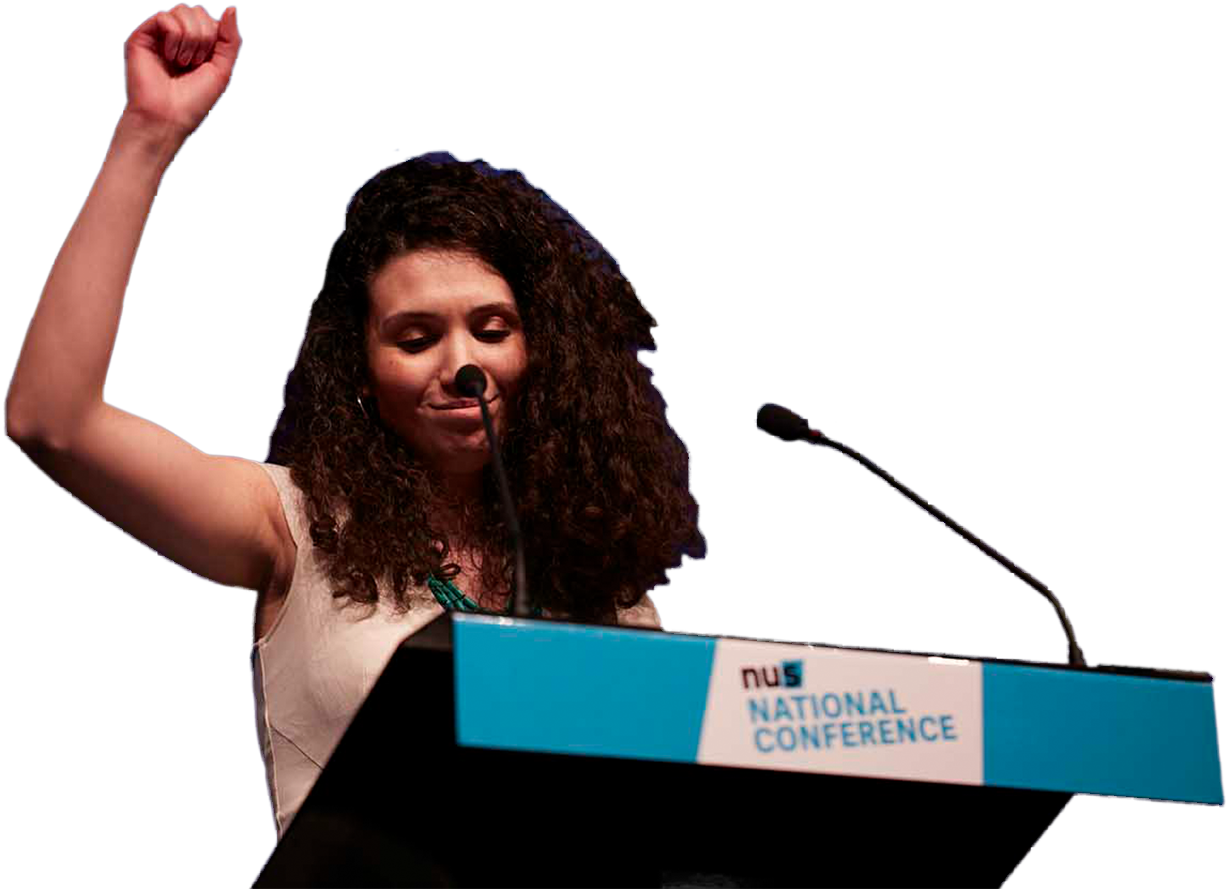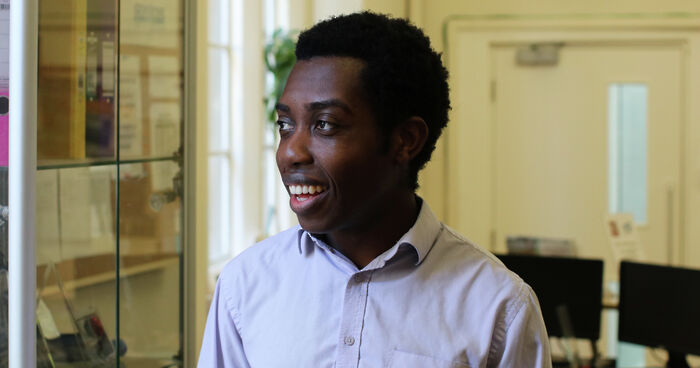NUS Presidential Contest 2017 – everything you need to know
Varsity’s essential primer for the forthcoming NUS elections

Between the 25th and 27th of April, the National Union of Students will hold its annual conference, at which it will elect its President for the coming year. It will also elect five Vice-Presidents, representing different areas of policy: Welfare, Union Development, Society and Citizenship, Higher Education, and Further Education.
The three candidates for President of NUS are Malia Bouattia, the controversial left-wing incumbent; NUS delegate from Durham University Tom Harwood, who is promising to re-connect NUS with its members; and Shakira Martin, the current Vice-President for Further Education and working-class single mother who wants to demolish “class barriers to education”.
After a year of controversies over anti-Semitism, free speech, and internal plotting, this could be one of the most controversial conferences in recent times.
Why should I care?

It is very easy to be apathetic about NUS elections. As even many of the candidates running for its positions will accept, it struggles with an image of parochialism and irrelevancy: many students feel that it does not represent their concerns, and indeed find many of its behaviours bizarre.
The structures of NUS do not help to enfranchise ordinary students. None of the positions on the executive is directly elected by the student body. Rather, the delegates elected by each affiliated university’s student union to attend national conference – in Cambridge’s case, Eireann Attridge, Roberta Huldisch, Audrey Sebatindira, Jonty Leibowitz, Josh Jackson and Amatey Doku – vote on their behalf, without having to consult their electors first. Many institutions’ students elected their delegates long before the candidates for President and the Vice-Presidencies were even announced.
However, even if NUS seems like a remote and exclusionary body, it is worth paying attention. The President of NUS is the de facto voice for students not only in the media, but in meetings and discussions with other bodies, such as trade unions and the government.
This year’s conference follows a year of controversy in NUS, particularly over alleged anti-Semitism in the organisation. In May and June of last year, a number of universities held referendums to disaffiliate from NUS. Subsequently, Bouattia was accused of “outright racism” over comments she had made about Zionism, and in December an internal review found that NUS had “failed to seriously support its black staff”. Recently, another review found a lack of trust amongst Jewish students for the organisation.
Who is running to be president?
Malia Bouattia
Malia Bouattia won election to the presidency last April on a policy-rich platform, promising to rally millions of students in a full-throated defence of education as a right. Then the two-term NUS Black Students’ Officer, she also promised to prioritise the causes of NUS liberation campaigns.

However, she shot to notoriety for comments she had made previously in which she had referred to “Zionist-led media outlets” and called the University of Birmingham “something of a Zionist outpost”.
Her election also came at a time when NUS was coming under increasing scrutiny by a media fascinated by some of its more bizarre aspects and incidents, most infamously a request that attendees at one conference stop clapping and make with jazz hands instead, in order to avoid upsetting audience members with the noise. Also eagerly covered was the refusal of NUS conference to commemorate Holocaust Memorial Day. Bouattia’s leadership came to be associated in some quarters with the image of a student union spiralling into weird and offensive irrelevancy, though many reject this and she still enjoys very substantial personal support within NUS and without.
Her platform this year is once again very detailed. She intends to campaign against Prevent, organise to protect the rights of EU students, provide support to international students (in particular, opposing deportations), and rally against the Higher Education and Research Bill.
Tom Harwood
Unusually for a candidate for NUS executive, Tom Harwood has held no positions in the organisation nor on any student union. His only position in NUS is as delegate to the national conference from Durham, which nonetheless provided him with a significant platform when the BBC picked up on his campaign’s opposition to NUS status quo and interviewed him on the Daily Politics. At just 20, he is also a very young candidate for the presidency.

He is running as the anti-establishment candidate, trying to tap into the disillusionment of students for the national union with calls for “a Credible, Inclusive NUS”. He has declared repeatedly his belief that “The NUS is in crisis”. His argument is that the organisation has been caught up in ideological battles and become too removed from the concerns of ordinary students, which he believes are broadly moderate.
His policy proposals are an odd mix of the serious and the satirical, underlining his attempts to blend attacks on NUS as it currently operates with a plausible plan for its reform: alongside his commitments to introduce ‘One Member, One Vote’ and lobby to have international students removed from migration statistics, therefore, are sardonic promises to “Defeat ISIS using NUS boycotts” and “Ensure every lecture begins with a pledge of allegiance to the NUS”. He has also specifically promised to tackle allegations of anti-Semitism within the NUS.
Shakira Martin
Shakira Martin’s candidacy also stands out from the usual, largely because of her background. Born into a working-class family in Lewisham, she left full-time education at the age of sixteen when she found that traditional methods failed to engage her. She found a home in Further Education when she enrolled in Lewisham College, and subsequently entered student politics.

Martin brings a dose of real life to the contest. She is a single mother of two children: she in fact was unable to attend a recent hustings in Manchester because she was looking after them. She has talked openly of the time she spent dealing drugs to supplement her income, and of the sexual harassment and racial abuse she faced and fought in the workplace after leaving school.
Her presidential platform is informed by these experiences. She states in her manifesto that she and others like her as youths were “taking part in a cycle of poverty and despair” which she broke only through education. She has pledged to break down “class barriers” to learning, and also wants to tackle injustices faced by students, notably homelessness and sexual harassment. Additionally, she has spoken of the need to give more resources to individual student unions.
She has been endorsed by CUSU President Amatey Doku, who is himself running for office this April.
Which other elections should I be aware of?

Cambridge students might like to keep an eye on the contest for Vice-President for Higher Education, in which none other than our own CUSU President Amatey Doku is standing against two other candidates.
Also interesting is the election for Vice-President for Union Development. Last Wednesday, speaking at a hustings in Manchester, the two candidates for this position who were present – Aleem Bashir and Ali Milani – both acknowledged openly what very few other candidates for other roles do, that NUS is currently suffering from a good deal of internal division.
Ironically, this contest will select the successor to Richard Brooks, who did not trouble to hide his opposition to Bouattia’s leadership. She and her allies in the organisation will no doubt be hoping that his replacement would more amenable if she were to be re-elected. But his potential successors seem intent on healing divisions, and so might help to bring some unity to the fractured executive.
The fractures run deep, however. When Brooks was secretly filmed by an undercover journalist talking about organising the opposition to Bouattia in January, Robbie Young, the Vice-President for Society and Citizenship, was named as an accomplice of his, though he later denied any knowledge of it. Nonetheless, current Vice-President for Higher Education Sorana Vieru, who supported Bouattia during that controversy, has endorsed Young’s opponent in his re-election bid, the charismatic Goldsmiths College Student Union President Danny Nasr.
Who is going to win?
It is difficult to predict. The winners will be decided by almost one thousand people who cannot ultimately be held accountable for their votes: they were themselves elected by only a tiny minority of their student bodies, and nearly all of their votes are unbound. In part, it will depend on the mood in NUS, which I sought to sample at a hustings in Manchester last Wednesday.
Timeline: The NUS’s year of controversy

Bouattia has the advantage of incumbency: it is rare for an NUS president to lose a re-election bid, the only example in recent history being Megan Dunn, whom Bouattia herself unseated last year. She is also still broadly popular in NUS: when the Brooks controversy emerged in January, many of the leaders of the liberation campaigns, along with Vieru, came out in support of her on Twitter, and Brooks was roundly attacked by her supporters on social media and in statements. When a Home Office Select Committee report accused her of “outright racism” in October, 350 student union office-holders, academic staff and students signed an open letter defending her, compared with just 98 who signed a rival open letter calling upon her to apologise to Jewish students or resign.
Bouattia also has a personal presence which is not conveyed in her media interviews or articles in the papers about the latest misdeeds of NUS under her leadership. In speeches and discussions she demonstrates her formidable command of detail. At Wednesday’s hustings, every answer she delivered was illustrated with specific policy proposals or successes under her leaderships over the last year. While most of the specifics of NUS’s policies and activities are mind-numbing to students with little interest in NUS, to those who participate in the organisation, the policy minutiae are essential.
However, this year’s election is unusual in that there is no mainstream moderate candidate. Harwood is presenting himself as a moderate insurgent, and whether or not he is successful in doing so, it means that the mantle of continuity, always a double-edged sword, falls on Bouattia’s shoulders by default.
In this context, Martin might benefit from the comparative freshness of her candidacy. She stands for many of the same things as Bouattia and has as impressive a record of campaigning and attending rallies, but does not have the same record of controversy. She also has a compelling story behind her, and her focus on devolving power to student unions could be popular. In addition to her left-wing backing, she could be a rallying point for moderates bereft of a more centrist option but intent on deposing Bouattia.
Harwood’s main strength is a strong social media operation, which he has used to convey an eye-catching platform. There is no doubt at all that he is articulating real frustration with NUS, much of which was in evidence in April and May of last year, when several student unions voted to disaffiliate from the organisation, and this could count in his favour if enough student unions which remained show themselves to be eager for reform.
While his approach is certainly popular amongst political centrists who are followers of student politics, however, this is not a famously large grouping. His candidacy may have little appeal to the conference, moreover, whose attendees, mostly devotees of student politics themselves, might be less than amused at his mockery of the organisation and its methods.

Harwood seems to be aware of this. In Manchester, speaking before a small crowd mostly of NUS devotees, he deliberately toned down his language, refusing to take Bouattia to task directly and even claiming to be in broad agreement with her on the key contentious issue of free speech. But this approach has its own dangers. Harwood’s insurgency has thus far been his edge; if he abandons it, he risks losing his principal distinguishing feature.
The question may be, then, whether or not NUS is looking for a change of culture. Looking at the broader picture, Harwood’s candidacy pits the part of the student population which dislikes NUS’s apparent censoriousness and preoccupation with ideological rather than pragmatic causes against the campaigning, proudly and emphatically political section represented by Bouattia and Martin.
So which is prevailing? In one telling moment at the Manchester hustings, the candidates were asked about their views on free speech. One of the principal bêtes noires of opponents of NUS has been ‘no-platforming’, the phenomenon of students banning controversial speakers from their universities. In one of her most impassioned moments of the evening, Bouattia declared: “There has been a tendency to conflate freedom of speech with freedom to hate.” It received the most applause – and most frenetic jazz hands – of any statement of the night. Little sign of a culture change on this issue. Just as significantly, almost every speech talked of the importance of ‘campaigning’, ‘lobbying’, ‘rallying’, not of ‘negotiating’, ‘implementing’. It is not clear that NUS’s mostly left-leaning and socially liberal base is diversifying in a way that would favour significant change.
“It’s just going to be all three of us agreeing with each other”, said one candidate on Wednesday as he moved up to the front of the room for a Q&A session with candidates for other positions. It seemed an apt summary.
 News / Deborah Prentice overtaken as highest-paid Russell Group VC2 February 2026
News / Deborah Prentice overtaken as highest-paid Russell Group VC2 February 2026 Fashion / A guide to Cambridge’s second-hand scene2 February 2026
Fashion / A guide to Cambridge’s second-hand scene2 February 2026 News / Downing Bar dodges college takeover31 January 2026
News / Downing Bar dodges college takeover31 January 2026 Comment / College rivalry should not become college snobbery30 January 2026
Comment / College rivalry should not become college snobbery30 January 2026 Lifestyle / Which Cambridge eatery are you?1 February 2026
Lifestyle / Which Cambridge eatery are you?1 February 2026










